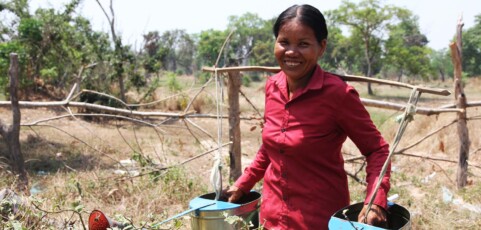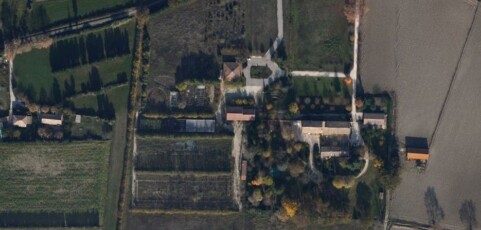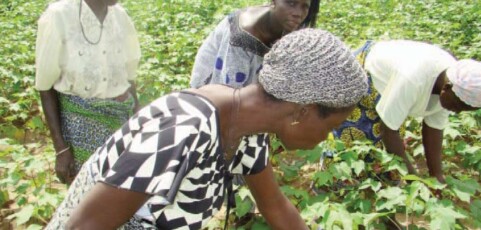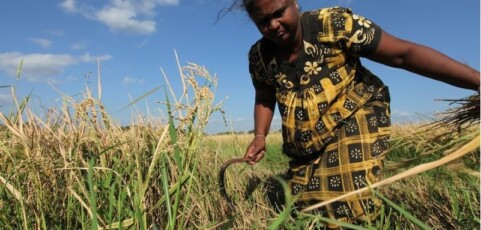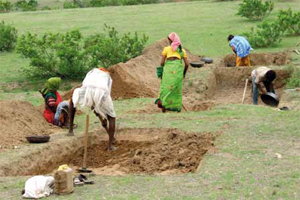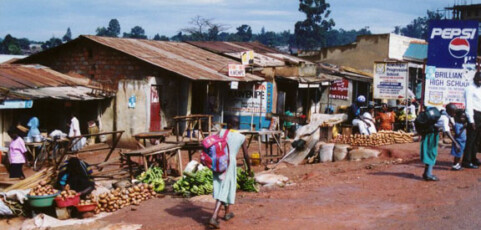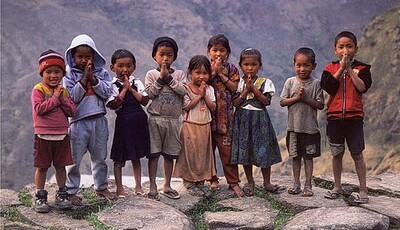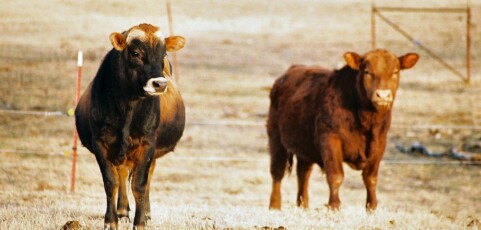This document summarises case studies from ten countries through ActionAid’s approach to climate resilient sustainable agriculture, which incorporates agroecology in a human rights framework. Based on these experiences ActionAid recommends to increase investment in agroecology, as part of a comprehensive human rights based approach: Read more
Youth and agriculture: new think-tanks for family farming
Three young authors associated with the Africa Family Farming Workshops write about the importance of creating a dialogue between family farmers, scientists and policy makers. The Africa Family Farming Workshops is an interdisciplinary, regional think-tank that facilitates innovative collaboration.
La Durette, a pilot agroecological farm
La Durette is a pilot farm in agroecology located in Avignon, France. Its aim is to set up innovative mediterranean agricultural systems, mixing crops under agroforestry in various designs – mainly fruits and vegetables, and integrating animals into the systems.
A new tool for improving organic cotton yields in Africa
A report on studies into the development of a novel pest management tool for organic cotton undertaken by PAN UK and their partners in Benin, West Africa, between 2006 and 2008. This food spray product can be used alongside other biological tools to attract, conserve and utilize beneficial insects. Read more
Tipping the Balance: Policies to shape agricultural investments and markets in favour of small-scale farmers
A recent wave of large-scale land acquisitions and other commercial investment in agriculture has raised concerns that small-scale producers are being marginalized. This report takes a new look at the role of public policy and market governance in ensuring inclusive sustainable development. It also foucses on elements that can contribute to gender-equitable results. Four country case studies, conducted in Guatemala, Nigeria, Tanzania and the Philippines supports this work.
Kaluchi Thakarwadi: Rejuvenated landscape, rejuvenated lives
Kaluchi Thakarwadi is a small, remote settlement in the district of Ahmednagar, in Maharashtra, in the semi-arid zone in the rain shadow of India’s western mountains. Rainfall is unreliable, so there is chronic water scarcity, with recurring shortages of food and fodder. Six years ago a broad watershed management programme was established, which has already had an enormous impact: a transformation from desert to a replenished watershed.
Conservation agriculture: a Uganda case study
This case study presents the status of conservation agriculture in Uganda. It is one in a series of eight case studies about conservation agriculture in Africa, which were developed within the framework of a collaboration between CIRAD French Agricultural Research Centre for International Development,FAO (Food and Agriculture Organization of the United Nations), RELMA-in-ICRAF (Regional Land Management Unit of the World Agroforestry Centre)and ACT (African
Conservation Tillage Network)
Improving Food Security for Vulnerable Communities in Nepal
For families living in Nepal’s remote highland regions, chronic food insecurity and hunger are part of daily life. Their own agricultural production is low; imported food is expensive; and as men migrate to find work elsewhere, women are left to manage farms and households alone. Climate change is making the situation worse.
This case study explores the reasons why Nepal is so vulnerable to food insecurity, and describes what Oxfam and its partners are doing to help improve food security for women and men living in remote parts of highland Nepal. It explores some of the innovative program activities that have been developed with these communities.
Teaming up to harness the Nile : can water users’ associations become effective?
In the Nile watershed, the home of ancient dynasties, 21st century farmers struggle to find better ways to irrigate their crops. Technical solutions help, but can farmers work together to improve their livelihoods in the long term? Research support from Canada’s International Development Research Centre (IDRC) provides some critical analysis. The document is also available in French and Arabic
From a conventional agriculture system to a system of self sustaining management practices: the case of Cuba
The incentive which determined the economic policy of Cuba that has resulted in new management practices for agriculture has been based on the necessity to reduce the coefficients of imported chemical inputs. This study was conducted in Cuba from 1999-2000, working with 3 CPAs (Cooperativas de Produccion Agropecuarias), all linked closely to the state. The study results observed a reduction in chemical input quantity for some crops as well as technological changes.

